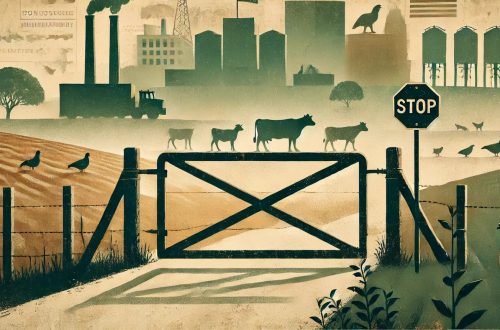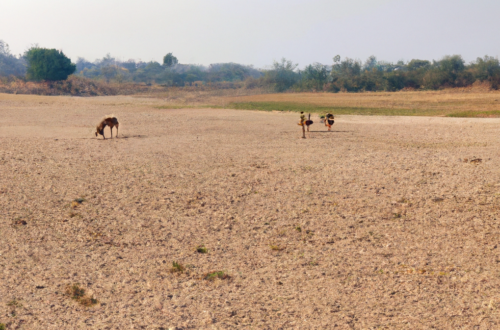The Inextricable Link: A Critical Look at the Interconnectedness of Animals, People, and the Planet in Food Systems
The global food system is indeed a complex network of interdependencies that has profound impacts on animal welfare, human health, and the environment. However, the intricate nature of this system often conceals uncomfortable truths and significant consequences. There are deep-seated issues within our food systems- the exploitative nature of animal agriculture and its detrimental implications on the well-being of animals, human health, and the environment.
Animal Exploitation and Cruelty: Animal agriculture, especially industrialized factory farming, fosters a system that prioritizes profit over animal well-being. In India, where dairy farming is a primary component of animal agriculture, there have been reported instances of animals being subjected to overcrowded and unsanitary conditions, deprived of natural behaviors, and undergoing painful procedures without anesthesia. When we consume animal products, we indirectly support this cruel treatment of sentient beings. Acknowledging the inherent value and rights of animals is crucial in dismantling this exploitative system and fostering ethical alternatives.
Environmental Degradation: Animal agriculture is a notable contributor to environmental degradation and climate change. In India, livestock farming has led to deforestation, habitat destruction, and river pollution. Cattle, the largest livestock group in India, emit significant amounts of methane, a potent greenhouse gas. To mitigate these environmental impacts, transitioning towards sustainable and plant-based food systems is essential.
Public Health Crisis: India’s food systems deeply influence public health. Overconsumption of animal products, especially processed and red meats, is linked to chronic diseases, such as heart disease, obesity, and specific cancer types. Additionally, the prevalent use of antibiotics in animal agriculture contributes to the rise of antibiotic-resistant bacteria, compromising our capacity to effectively treat infectious diseases. Prioritizing plant-based diets and promoting food safety measures are essential to safeguard public health in India.
Food Inequity and Global Hunger: Despite the presence of widespread hunger and malnutrition in India, a substantial portion of the country’s grain production is allocated to animal feed. This inefficient use of resources worsens food inequity and impedes efforts to combat hunger. Transitioning towards plant-based diets and sustainable agriculture practices can free up land and resources, enabling the production of more equitable and nutritious food for all.
Economic Disparity and Exploitation: The concentration of power and wealth within the animal agriculture industry perpetuates economic disparities and exploits vulnerable communities. Small-scale farmers in India often suffer the brunt of this system, facing unfair trade practices and market domination by large corporations. Encouraging local, sustainable agriculture and fair trade initiatives can empower communities and promote economic justice within the food system.
It is crucial to critically examine the interconnectedness of animals, people, and the planet within our food systems. In India, the exploitative nature of animal agriculture, environmental degradation, public health concerns, food inequity, and economic disparities are all intertwined. To address these issues, we must question and challenge the status quo. Promoting plant-based diets, advocating for animal rights, supporting sustainable agriculture, and fostering equitable food systems are key steps towards a more compassionate, just, and sustainable future for all living beings. We must strive for a food system in India that respects the interconnectedness of animals, people, and the planet, prioritizing their well-being over profit and exploitation.



